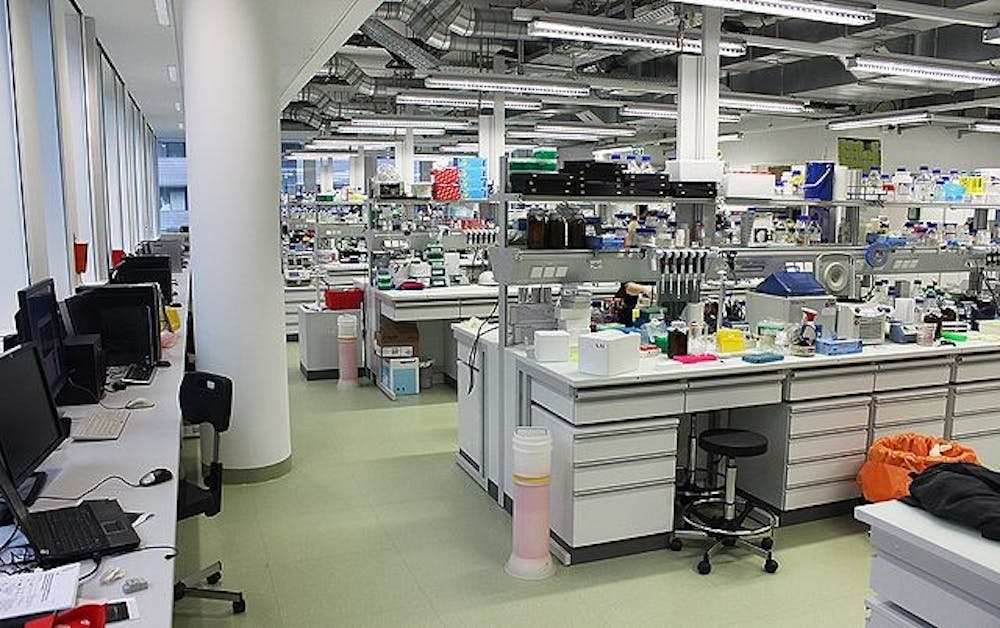Gain of function research is a technique in which diseases are artificially engineered to have enhanced biological effects — including increases in their deadliness and transmissibility. While proponents of this research argue it serves as an important tool to better understand diseases and combat future pandemics, many academics and experts have questioned its benefits, arguing that these potential benefits are outweighed by the risks. After all, humanity is only as safe from a genetically engineered virus as the lab that created it is secure from leaks.
This fear of a deliberately-altered virus escaping a lab to cause a global pandemic is one that has already played out. In 1978, smallpox escaped a lab in Birmingham, England and killed a woman, with lab mismanagement responsible for the leak. In 2004, a number of researchers who contracted SARS in a lab went on to infect their families — resulting in nearly 1,000 people in quarantine to stop the outbreak.
Notably, the current COVID-19 pandemic may have been a product of an escaped pathogen from a laboratory — the Wuhan Institute of Virology — that performs gain of function research. In fact, a recent report by the U.S. Intelligence Community failed to rule out a lab-leak as the origin for COVID-19, expressing doubt in previous assessments that COVID-19 was a purely natural phenomenon. Unfortunately, scientists don’t know enough to ascertain exactly what COVID-19’s origin story is. Without more cooperation and transparency from the Chinese government, Chinese President Xi Jinping may very well be the only person in the world to truly know for certain how the pandemic originated.
In the meantime, however, we ought to be doing everything possible to prevent a future pandemic from escaping a lab — and there’s a role for academic institutions like the University to play in doing so.
One simple area to action on is to ban University funding for or support of gain of function research. As mentioned earlier, gain of function research involves the engineering of dangerous diseases for the purpose of scientific study, which places our public health in the hands of the safety procedures of the lab conducting it. That leads to a lot of risk — sometimes, despite the best mitigation efforts, accidents happen. Especially after our current struggles with a raging pandemic that’s relatively survivable as far as diseases go, one ought to be concerned about what will happen should we have a far-deadlier pandemic in the future.
Of course, it’s worth noting that it’s not clear if the University is presently engaged in any gain of function research. But a preventative ban on any University support will ensure our institution does its part to eliminate this dangerous research from ever again risking our public health. Moreover, the University taking a stand now to ban gain of function research will hopefully inspire other institutions to ban it, recognizing that our collective health is worth far more than whatever funding an institution can receive for conducting research that is often unnecessary.
Further, bans on gain of function research are hardly unprecedented. The federal government actually had one in place from 2014 to 2017 over concerns about research on severe acute respiratory syndrome, but controversially lifted it partly due to pressure from researchers eager to resurrect their projects. A recent article in The Lancet noted that gain of function research has not tangibly benefited any discoveries that could not have been accomplished by a less-dangerous method. Further, this same piece goes on to state that the risk-review assessments that approve gain of function projects are inherently subjective — and it is worrisome that institutions that may benefit from funding or prestige from gain of function studies are the ones determining whether to pursue it given the prevalence of academic corruption.
After all, one is hardly an unbiased reviewer if they would materially benefit, even indirectly, from allowing a project to go through. While some may respond that improving the risk-review process is better than an outright ban, the question still remains — why take the risk at all when there are no unique benefits from gain of function research?
A potential wave of bans on gain of function research following a potential ban here at the University would be welcome, as the simple truth is that we cannot stop this trend without widespread, global commitment to its eradication. After all, we just learned that one virus spreading through a Chinese city was enough to shut down the entire world for over a year — resulting in the deaths of millions globally in the process.
Regardless of the origin of COVID-19, we cannot ever again let so much devastation be wrought by a genetically-engineered disease that escaped from a lab. Thus, the University has a responsibility to put a permanent ban on gain of function research in place immediately.
Matt Heller is an Opinion Columnist for The Cavalier Daily. He can be reached at opinion@cavalierdaily.com.







